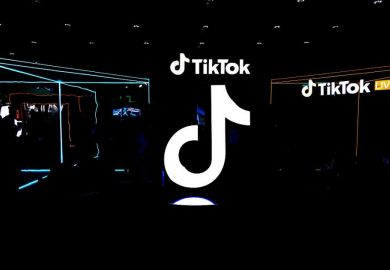Australia’s competition watchdog has signalled “concerns” about Turnitin’s buyout of one of its two main local competitors, warning that the deal could lead to higher prices and reduced services.
The Australian Competition and Consumer Commission (ACCC) says the California-based plagiarism detection giant’s acquisition of Stockholm-based Ouriginal could disadvantage universities and colleges “by removing one of its only competitive constraints in Australia”.
In a “statement of issues” outlining the ACCC’s “preliminary view”, the regulator said the proposal could reduce innovation globally by relieving Turnitin of pressure from a “particularly innovative” competitor.
ACCC commissioner Stephen Ridgeway said Turnitin was easily the largest provider of anti-plagiarism software to Australian universities, and Ouriginal had “far fewer” local customers. “However, it is one of Turnitin’s only competitors in the higher education sector and may develop into an important competitive constraint,” he said.
“We are focusing on…whether Turnitin is buying out its most promising competitive threat to protect its market position. Some stakeholders have suggested to us that Ouriginal is cheaper and may have a more innovative product.”
The ACCC is one of many regulators considering the proposed acquisition. It intends to announce its final view on 18 November.
While it cannot prevent the deal from going ahead, it can take action against companies operating in Australia in breach of the Competition and Consumer Act. Section 50 of the act prohibits acquisitions likely to substantially reduce competition in any market.
Stakeholders have been given until 27 September to lodge submissions on Ouriginal’s capacity to innovate, and the likelihood of other competitors filling this role in the event of a buyout by Turnitin.
The ACCC also wants feedback on other existing and potential suppliers of anti-plagiarism software, and the difficulties new players face in entering the market.
The regulator noted overseas competitors, including Copyleaks, Copy Killer, StrikePlagiarism, Viper and Proctorio, but said it was not clear that they intended to expand into Australia. And while Google and Microsoft had introduced anti-plagiarism features into their products, there was no evidence that the two technology giants planned to move into the “relatively niche” higher education market.
Register to continue
Why register?
- Registration is free and only takes a moment
- Once registered, you can read 3 articles a month
- Sign up for our newsletter
Subscribe
Or subscribe for unlimited access to:
- Unlimited access to news, views, insights & reviews
- Digital editions
- Digital access to THE’s university and college rankings analysis
Already registered or a current subscriber?








